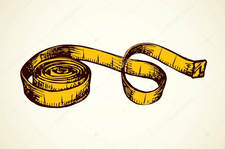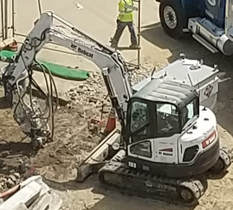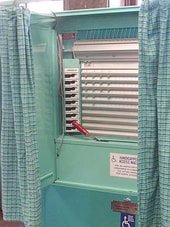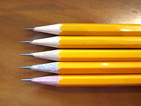weekly column
|
Each week, find a commentary on something connected to verses of Torah or another source of wisdom
|
|
Each week, find a commentary on something connected to verses of Torah or another source of wisdom
|
 The Leviticus:8 Project He shall remove all the fat from the bull of sin offering: the fat that covers the entrails and all the fat that is about the entrails Leviticus 4:8 I have a friend who is morbidly obese, so much so that I am startled every time I see him because I cannot hold in my brain his size. Some time ago we had lunch and I asked him if he was alarmed by his weight. He told me he was not because he never saw himself as fat. He said he had a fixed image of himself since he was a teenager of more usual proportions and that’s what he saw when he looked in the mirror or thought of himself. I was fascinated by that response, but only recently understood it viscerally. I was skinny at 16, but fifty years later, I most certainly am not. And worse, I carry most of the extra weight right up front. Pictures of me taken in the last number of years show ample reason why my granddaughter asked me, during her mother’s recent pregnancy, if I had a baby in my tummy, too. Mostly, I don’t see it in the mirror, probably because the direct frontal view I have when brushing my teeth or shaving allows me to see the svelte teenager that is still the source of my body image. But there is no getting around it – almost literally – that in the midsection, I am fat. Adjective or noun, that word is morally neutral, but in common usage it carries a negative judgment. If it didn’t, we would not have so many euphemisms for it or spend so much time and effort addressing it. Certainly, there are serious health considerations to schlepping around excess poundage, but so many cultural references disparage fat that it is hard to hear a description without hearing a judgment. I alternate between resolve and despair about my shape. When buttoning my pants requires a yoga position or squirming into my car in a tight parking spot soils my shirt, I become determined to lose whatever I must to eventually melt that belt. (I know you can’t choose where to lose, but sooner or later it will be my belly.) When facing a particularly delectable dessert or a chance to join a friend for a drink, I tend to rationalize the inevitability of my condition. At the moment, I am making slow progress. I won’t say in which direction. It does not make me feel better to notice that so many people around me have wider girths than I carry. Some of them, I suspect, are in the same place of denial as I am. The expansion of the American physique is well-documented, even as airlines and theaters try to squeeze more revenue out of narrower seating. The fat that attaches to certain internal organs was, under whatever system governed the sacrifices, not considered edible. Instead, it is used to create the sweet-smelling smoke of the altar. In that sense, it is not really a sacrifice – there was no particular value to it. That which had worth was preserved and used to sustain the priests and their families. I imagine this context affirms both of my attitudes toward the current condition of my body. There is no worth to the fat. It would be sweet to divest myself of it and to return to sizes of suits and jeans that I remember from my earlier days. But the fact is that I, like my friend, still recognize what is of real value. The younger and more vital forms of ourselves still reside inside these larger versions. Being able to understand that the fat may obscure the sight of our teenage bodies but not the spirit, not the dreams, not the delights is essential to living well today. That’s not an excuse to ignore the health risks that come with being overweight. But it is a caution against despair. Fat is extraneous. It is neither inevitable nor definitive. This physical lesson is a spiritual one as well. There are all sorts of behaviors, beliefs and neglects that have encased our better selves in unnecessary and probably unhealthy disguise. But if, by remembering the good person at the core, we can learn not to fixate on what is neither inevitable nor definitive, with or without the excess poundage we can live a good and happy life.
0 Comments
 The Leviticus:8 Project and lay his hand upon the head of his offering. It shall be slaughtered before the Tent of Meeting, and Aaron’s sons shall dash its blood against all sides of the altar. Leviticus 3:8 I work in an office with a floor-to-ceiling window that, at the moment, overlooks a construction site. (I post many pictures of it on Facebook, if you are interested.) Among the machines that are there solely to distract me is a giant version of an immersion blender. Its purpose is to churn the ground in preparation for the excavator to scoop up the dirt, which is then trucked away. Inevitably (so far), the blender hits water and the hole it is digging fills with mud. When the operator pulls it out, it is caked to the point of dysfunction, and two guys dressed in rubber aprons hose it down until it is once again gleaming white. This is one of the jobs the ten-year-old inner child in me wishes he had. Construction is dirty business. That seems self-evident as I type it, but all my childhood memories of books like Mike Mulligan and his Steam Shovel and toys with Tonka stenciled in stylized letters never prompted the question, “How do you keep this stuff clean?” The blender is pristine at the end of each day, having been sprayed clean any number of times. But someone has to clean up all that mud. Bill Cosby (if it is permissible to use his early work) put such words in the mouth of Noah. “Have you looked in the bottom of that ark?” he screams at “the Lord.” “Who’s gonna clean up that mess?” It is a one-time dilemma in the story – the giant ship rests atop Mt. Ararat awaiting discovery by contemporary adventurers and authors of speculative best-sellers. I am thinking about these messes because of the focus on the biblical verse. Not for the first time and far from the only time the blood of various sacrifices is dashed all around the altar and, presumably, everything and everyone in splattering distance. Who cleans up all that blood? There is a quaint teaching in the Talmud that suggests that a number of miracles were the norm in the Tabernacle and the Temple – no flies in the slaughterhouse, the meat never spoiled, the rain never extinguished the fire, and so on. But it says nothing about the disposition of what was, unquestionably, lot and lots of blood and other liquids that ran from the various offerings. Holiness is a very messy business. I work nine blocks from the White House and about two miles from Capitol Hill. It has always been the case, but no time more than the last two years, that the workings of our government – the constructing of policy, the transporting of legislation from bill to law, the bloodletting of political rhetoric – leave an awful mess. We the people are usually presented with something shined and unsullied as the result, but the process of doing the necessary work of government involves necessary dirty work. Governing is a very messy business. Is it in some measure a blessing that we have been subjected to the specter of mess-making by the current crop of electeds, appointeds and candidates? No matter what you think of the outcome, the detritus of what has been dug, dumped and dashed has revealed in technicolor what we have previously decided to overlook. Our fascination with constructing the edifices of our society, of rescuing ourselves from catastrophe and of making ourselves feel righteous must be cleaned up. Who’s gonna do it? I am pretty sure that the answer is we the people. The combination of bombast and bigotry that has forced us to choose between outcome and process has left its field of debris between us as we rushed to either side. If we are to reclaim the middle space, then it is time to put on the rubber aprons and pick up the hoses and start washing away what has accumulated. We need to sweep away the disparaging nicknames and vulgarities and bald-faced lies. We need to scrub the exaggerated criticisms and disrespect for the office and mockery of frantic and frustrated people trying to do their jobs. That’s not to say we should accept the mess as inevitable and unavoidable. Just as the animal sacrifices evolved into the much more hygienic practice of prayer and the construction lot will become a spotless office building, we have the ability to expect more and elect more. We can lift disagreement above mutually assured destruction, or, as my friend Greg Weiner described the approach of James Madison, embrace persuasion, openness to persuasion, empathy and reasonableness. By late afternoon, a peculiar peace settles over the construction site. The workers have locked the gates. The machines are clean and quiet. The holes are a little deeper and the materials for tomorrow’s work are organized outside the field of activity. Tomorrow will inevitably be a mess – but only a necessary mess. In the end, because someone cleaned up today, it is possible to imagine just a little bit more progress tomorrow.  The Leviticus:8 Project When you present to the LORD a meal offering that is made in any of these ways, it shall be brought to the priest who shall take it up to the altar. Leviticus 2:8 I have long been a fan of ritual. It is almost worth being religious just to be able to perform the rituals connected with a faith tradition. The prostration during Muslim prayer, the administration of communion during Christian worship, the devotional positions of Hindu spiritual practices, the choreography of Jewish liturgy – all of these engage the participant in a larger endeavor. The Jew who waves a palm branch on Sukkot/Tabernacles joins not only with fellow worshipers in seeking salvation but occupies the same space and movement of Jews across time and geography. The Roman Catholic who genuflects enters a specific point in theological history that is renewed with every such action. Ritual can be rote behavior, of course. But when it is imbued with meaning by community and practitioner alike, it adds depth of life and reinforces the values that produced it in the first place. Such ritual is not the sole purview of religious communities, as I hope is obvious. For example, the presentation of the national anthem before sporting events is meant to connect the honorable endeavor on the field of play with American values of excellence and fair play. No wonder there is such strong reaction when someone tampers with the practice. It is the custom of fans at Baltimore Orioles games to loudly emphasize the exclamation that begins the last lyric (Oh!) as an expression of their enthusiasm. Os fans love it. On the other hand, it has become the custom of some professional athletes to take a knee or absent themselves for the Star-Spangled Banner. Some fans don’t appreciate it. Messing with ritual is dangerous and uncertain business. The most important ritual in American society is voting. Yes, it has a practical function – it is how we elect our leaders – but it also reinforces the message that democracy requires participation. If they threw an election and nobody voted, there would be a vacuum we would be unable to fill. I know that sounds appealing to some folks these days, but the fact of the matter is that voting is as much for the voter as it is for the, um, votee. The old guy in me still wishes we had big clunky voting machines and one-day voting. That’s because I love the pageantry associated with showing up at a familiar place transformed for the occasion – a school gym or fellowship hall – and presenting myself to people I know who have been elevated to official function. I have to state my name, present my proof of identity, carry the sacred card to another citizen-official to receive my ballot and, alone with my conscience, indicate who I think is best suited to make decisions on my behalf. It was more fun and visceral to flip indicators and pull a big lever to register the vote, but even that little “beep” and LED flash that accepts my paper ballot these days carries with it a satisfaction that I am responsible for the preservation of the Union. And the validation that is offered by yet a third neighbor-certifier – a round sticker attesting that “I VOTED” – makes me feel as proud as when I didn’t cry during my tetanus booster and got a sticker for bravery. It is still critical to vote, and maximum participation is important enough that the accommodations for early voting and same-day registrations make logical sense to promote a more representative outcome. But it is not the outcome alone that is the purpose of an election, any more than it was the sacrifice alone that was important in Biblical times. The sense at a particular moment that the infrastructure of meaning depends on the individual is essential in the ritual. For all the pomp and circumstance, forgiveness is not mine unless I step forward for communion. For all the recitation of sacred text and witnessing of the moon, the pillars are not strong unless I fast, pray, donate, confess and make pilgrimage. For all the astronomical dependability of sunrise-sunset, shabbat does not enter my home unless I light the candles. Yes, the priest has to take my offering to the altar, but not until I present it to him. And on election day, the entirety of the infrastructure exists for my sake. I bring what is of worth, something only I possess. Others are awaiting my arrival, preparing my way, accepting my offering, validating my decision. I have dignity in casting that vote, and for my participation, all previous derelictions of civic duty are excused (well, maybe not felonies…). I think that’s what it means to have sacred meaning. It is not necessarily about something other-worldly or even spiritual. It is about capturing the moment of meaning that cannot be fulfilled without each of us and all of us. There is an election coming up soon – no matter when you are reading this. Don’t miss it.  FAMILY BUSINESS The Leviticus:8 Project And Aaron’s sons, the priests, shall lay out the sections, with the head and the suet, on the wood that is on the fire upon the altar. Leviticus 1:8 My father and both of my grandfathers were businessmen. That is to say they owned and operated small businesses. My father’s business was office supplies and furniture. My mother’s father was an independent plumber. My dad’s dad, good with his hands, worked in a number of businesses and eventually manufactured shower curtain rods. None of their children followed them into their businesses. My sister joined my dad’s business for a short time, but it was not her preferred destination. One aunt tended to the administrative end of the plumbing business, but she had no interest in pipes and sewage once it closed. Everyone else went in completely different directions. I know people in my generation – men, mostly – who were expected to follow their parents – fathers, mostly – into the family business. Sometimes it was a liquor store or a car dealership or light manufacturing. Sometimes the business was a profession – medicine or law, for example. And any number of the people who graduated from seminary within in year or two of me were themselves following their fathers into the family business. The notion that we can choose our careers in life is relatively new. Sure, there was some manner of choice before the rise of universities and trade unions, but if your family ran a farm, so did you. If your family traded textiles or imported spices or herded livestock, then you did, too. Could I have lived my life laying pipe or selling file cabinets? Maybe yes and maybe no. The grandfather I knew (the plumber) not only loved the work he did, he managed to find practical applications of it outside of faucets and drains. I have written before about the sukkah (booth) he designed and built for our holiday observances from galvanized pipe, but he was also an invaluable adviser when I decided I wanted a waterbed in the second-floor bedroom of a house I rented; he calculated the weight of the thing by the dimensions I gave him over the phone and then suggested I put it on the first floor (I didn’t). When I asked my father whether he would ever give up the business he devoted 35 years to, he said he had no particular affection for the products, but he loved being in business, bring all sorts of separate parts together to form a working whole. I would have been stuck in either job. I might have been good enough, but I always would have dreamed of something else. I suspect my three kids, none of whom wanted to be a rabbi, feel the same way. The closest any of them has come is my middle daughter who went to college four blocks from where I was ordained…in a completely unrelated field. Yet here is the instruction in the Torah, directly from the Author, that determines the roles of Aaron’s sons. Aaron went into the God business and the boys (four at this point) are apprenticed to lay out the sections of the offerings according to the plan. Were they enamored of this special role that their father played and tickled to be high-priests-in-training? Or did they bear the presumption that their lives would be structured for them with resignation and a touch of resentment? We have no way of knowing. And, frankly, asking the question may even be a little presumptuous in and of itself. My late friend Corky thought he would enter his father’s business and, after college, spent some years laying out the sections of the offerings, so to speak. In the end, for many complicated reasons, it did not work out. I learned only recently, decades after his unexpected death, that it was a devastating blow to his sense of direction in life. He could no sooner imagine himself not in his father’s business than I could imagine myself in my father’s business. Here is one thing we do better than our Biblical ancestors: mostly, we do not determine our childrens’ future for them by insisting that they follow in our footsteps. Corky’s father and mine both encouraged their children to find their own calling. My sibs serve the Jewish community as professionals, as my dad and mom did as volunteers. Corky’s brother is a doctor, as are two of my first cousins. And we have attorneys, academics, artists, administrators, animal caregivers and one cousin who seems to have been gifted with the entire generation’s ability to fix anything. But nobody who went into the family business. |
Archives
October 2023
Categories |